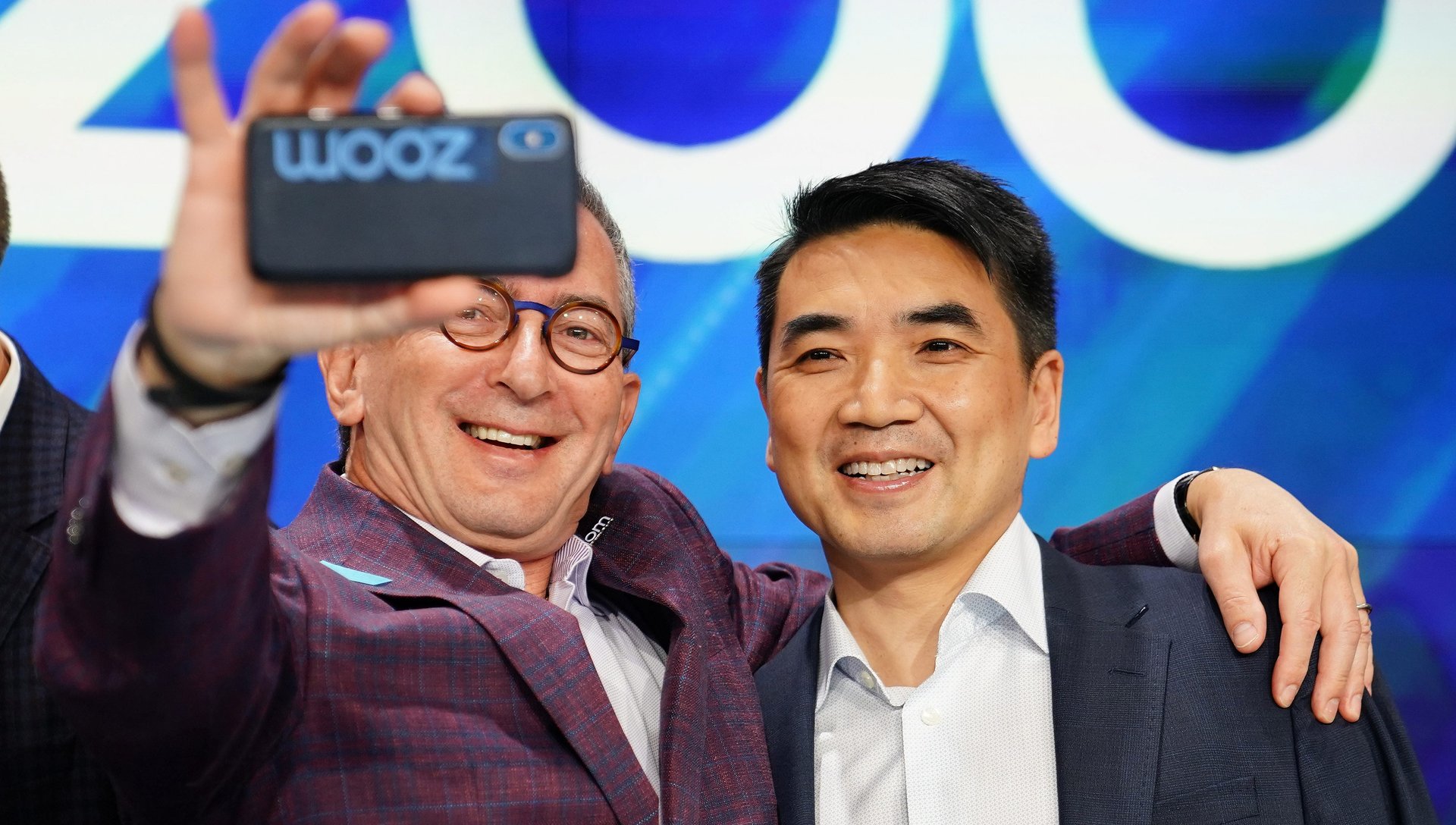Is Zoom on the road to genericide?
It’s almost hard to remember it now, but before the pandemic, Skype was a more popular way to Zoom than Zoom was. Now, as millions of people continue to stay at home, Zoom is how we work, learn, and socialize. It is a noun (“I have a 10 am Zoom”), an adjective (“We’re having a Zoom wedding”), and a verb (“Let’s Zoom”). It has a gerund (“Zooming!”) and, of course, an endless stream of memes.


It’s almost hard to remember it now, but before the pandemic, Skype was a more popular way to Zoom than Zoom was. Now, as millions of people continue to stay at home, Zoom is how we work, learn, and socialize. It is a noun (“I have a 10 am Zoom”), an adjective (“We’re having a Zoom wedding”), and a verb (“Let’s Zoom”). It has a gerund (“Zooming!”) and, of course, an endless stream of memes.
Having a product that people depend on in an unprecedented crisis is a pretty good business model. In its most recent quarter, Zoom brought in $663 million in revenue, a quadrupling from the year before. The market value of the nine-year-old company, which went public in April 2019, stands at $102 billion and briefly was higher than IBM’s.
But when a brand becomes so ubiquitous that it turns into a generic term for any type of similar product, it can lead to the loss of trademark value and hurt the ability of the brand’s owner to distinguish itself from the market.
The official term for this is “genericide,” and one of the more famous instances of it occurred almost a century ago in the 1921 Bayer Co. v United Drug Co. case, in which Bayer lost its trademark for Aspirin. (Judge Learned Hand ruled that “aspirin” had become public domain and could be used by any manufacturer of the drug.)
Other victims of genericide include escalators (once the province of the Otis Elevator Co.), and dumpsters (a portmanteau of “dump” and “Dempster,” the surname of the industrious brothers who patented their waste-handling invention in 1935).
The sudden ubiquity of Zoom prompted The National Law Review to ask in July whether the brand mark is on the verge of becoming generic:
Between “Zoom meetings,” “Zoom trivia,” “Zoom yoga”, “Zoom weddings,” and Zoom just-about-anything-else-you-can-imagine, the company’s name has quickly evolved into a kind of shorthand for a livestreamed substitution for physical attendance in the new normal.
But while the foundational conditions of genericide are present, the authors suggest Zoom can sidestep this fate. They note that that Xerox, Jeep, Band-Aid, and Kleenex all “continue to be protected by active trademark registrations, and thus are spared from genericide for now,” despite the widespread use of those brand names as generic descriptions for copiers, SUVs, bandages, or tissues.
It can help in these kinds of matters to get the public on your side, hence this ad campaign from Xerox (“You can’t Xerox a Xerox on a Xerox. But we don’t mind at all if you copy a copy on a Xerox® copier”) and this music video featuring actors playing lawyers for the company that makes Velcro brand fasteners.
In the case of Zoom, people may use the term generically to mean videoconferencing, but they will likely continue to see it as a distinct platform from Skype, FaceTime, or Google Hangouts, says Gene Markin, a lawyer at Stark & Stark whose litigation work includes copyright protection and trademark infringement suits.
In fact, he argues, companies have gotten quite good at making their brands more distinct. Perhaps that explains why we uber, we google, we venmo, we airbnb—even when we’re not actually using Uber, Google, Venmo, or Airbnb—and why Zoom has joined the pantheon of brands with meanings that are greater than themselves.